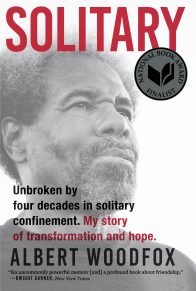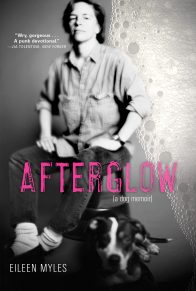I grew up in the 1970s, which is to say I grew up regretting the fact that I hadn’t been born about ten years earlier. For those of us who became teenagers in 1974, our memories are not of Viet Nam War protests, Woodstock and the Summer of Love. If we can recall anything at all, it would be Watergate, gas rationing and the early works of Barry Manilow. And in my case, eight weeks at a summer camp in Maine with just one thing on my mind.
How vividly I can still remember standing by the edge of the lake, watching the Wolverines’ cabin burn to the ground and thinking to myself, “Maybe this will be the summer I finally get a boyfriend.” But I didn’t want one of those boys from the Wolverines. First of all, I was thirteen and they were only twelve; and besides, they were kind of dumb, going along with Todd Zimmerman’s plan to place lit candles under their beds before dinner so that by nightfall their sheets would be toasty warm.
Though Todd and his bunkmates would grow up to be doctors, lawyers, college professors and temporary dotcom moguls, all I saw that summer was a bunch of budding pyromaniacs. With their bunk a total loss, the Wolverines were split up and forced to spend the summer of 1974 living with the waiters over the boys’ dining hall in rooms so hot you could bake muffins in the drawers, their quest for warmth fulfilled. My quest, on the other hand, was only just beginning.
* * *
I couldn’t wait to go to sleepaway camp. I’d dreamed about it for years: the many wonderful friends I’d make, the one special boy I’d meet, the magical memories that would linger for a lifetime.
When I’d turned eleven, my parents said I was ready. But first, they had to argue about it. My mother always wanted me to go to Camp Mohaph, where she’d spent her summers in the 1940s. Mohaph (not really an Indian word, but an amalgam of the owners’ names: Moe, Harry and Phil) was a ritzy place populated by the children of Revlon cosmetics and Horowitz-Margareten kosher foods. My mother wasn’t from quite as affluent a background, but her family owned a dry goods store on the Lower East Side so she had more underpants than anyone else. My father’s experience was modest by comparison. He went to Boy Scout camp for only a week, sleeping outdoors in a tent and swimming in an itchy wool bathing suit his mother knitted for him. But after serving in the Navy during World War II (and successfully defending Annapolis, Maryland), my father was hired by beautiful Camp Cicada in the Catskill Mountains, where he was voted Most Popular Counselor.
“Why can’t Mindy go to Mohaph?” my mother questioned.
“Because she’s going to Cicada,” my father answered.
“But you promised when I was pregnant that our kids would go to my camp!”
“You were making me nuts,” he reminded her. “I’d have said yes to anything.”
It didn’t matter to me who won. I just wanted to go to camp. In the end, my father prevailed and for my first summer away from home, I went to his alma mater, but only because Mohaph had recently gone out of business. As it turned out, I didn’t enjoy my summer at Cicada.
“The girls were really mean,” I told my parents.
“I’m sure they were just shy,” my mother insisted.
“And they’re all really rich and have nicer clothes than me and the counselors make you fold your blankets a certain way and I couldn’t do it.”
“I loved my summers at Cicada,” my father reminisced. “I think you should give it another try.”
When I disliked it even more the second year, I told my parents they were wasting their money. This did the trick, and they agreed I could pick any camp in the entire country to attend the following summer, as long as it had a kosher kitchen. I had three choices.
We met with the owners of two of the camps, also located in the Catskills, but both places looked and sounded like the rigid, snobby nightmare I’d just fled. And then there was Camp Kin-AHurra in Maine, the Vacationland state.
Owner/Director Saul Rattner scheduled an appointment at our house in Springfield, New Jersey in the winter of 1973. Maine sounded so far away and exotic, the thought of Saul’s visit filled me with nervous expectation. I waited in the den, watching a rerun of My Three Sons, wondering how so many people could live in one house and still stay calm.
My mother was in the kitchen, removing the plastic floral centerpiece from the table, when the doorbell rang. My father got up to answer, motioning for me to turn off the TV and for my brothers to go upstairs. I stood ten feet away as a pipe-smoking, mellow-voiced man in his fifties crossed our threshold, greeting my father with a hearty handshake, the kind where you use both hands. “Wonderful to meet you,” he said, sounding like he genuinely meant it.
Saul spoke with the quiet authority of a rabbi, though he was dressed in khaki pants and a safari vest and he drove a Jeep, as if he’d needed a machete to cut through the brush to reach our tract house in the suburbs. I couldn’t tell if my parents looked comfortable or skeptical as my father led this stranger into our kitchen. When he heard my name, Saul smiled and said, “Oh yes, we’ve got a cartload of Mindys.” I chose to interpret this as his way of calling me ordinary.
Nevertheless, I was thrilled when he took a seat at our white lacquer-look table with the turquoise vinyl chairs and backed up his sales pitch with photographs of a beautifully maintained wooded paradise blessed with endless golden sunshine.
“Archery, arts and crafts, all the usual activities,” Saul explained, waving his pipe across the glossy black and white images in the catalog. “Plus we take the campers on lots of wonderful trips. Mountain climbing, canoeing. Our campers come from all around the world and we feel it’s our duty to show off the magnificence of Maine. It’s quite exquisite.”
“Must get pretty cold at night,” my father said.
“That’s why the bunks are heated,” Saul replied.
“Really?” My mother asked. “Never heard of a camp having that.
“Oh, it’s essential,” he assured her.
“What’s this?” I asked, pointing at the next page.
“That’s a camper developing pictures in our photo lab,” Saul explained. “Do you like photography? Do you own a camera?”
“Yeah! I do! They were giving them away for free at the Esso station when it changed over to Exxon, so we filled up both cars so we could get two cameras, even though my mother’s car only needed like a dollar’s worth.”
“Uh, that’s enough,” my father cut in.
But it wasn’t enough. I wanted more. I wanted to go to this camp with the kids from all over the world, go canoeing with them and learn photography and come home with snapshots like the ones in Saul’s catalog. This was the place for me.
“You really don’t want to go to one of these camps in New York?” my mother asked. “It’s so much closer.”
“I don’t know,” I said. “They just looked—the same.
“And the one in Maine?”
“Looked—different.”
I was thirteen years old and I knew what I wanted. This time, the choice would be mine. All my parents had to do was pay for it.
In the 1970s, an eight-week stay at a privately owned camp cost an astronomical twelve hundred dollars. Eleven-fifty if you registered early. I didn’t know how my father was able to afford this. My older brother Mark and I have often discussed the fact that up until we graduated from college and our parents built a new house—the biggest one in town—we believed our family was extremely poor.
My father had often spent nights and weekends at his family’s grocery store in Jersey City. One time, when Mark was five years old, a neighbor asked him what our father did for a living and Mark said, “My daddy’s a delivery boy.” I knew he was also a lawyer, but even so it seemed money was always tight. It was surprising that for a third summer in a row my parents could afford to send me to camp. It was not surprising, however, that they decided to save on airfare by driving me there.
My father loved to drive. He would take our family anywhere, so long as we could reach it by car. His family had worked seven days a week and never owned one, never traveled. Growing up, he’d been denied the opportunity to revel in motorized family togetherness.
Both of my parents enjoyed visiting Colonial restorations so we spent our vacations watching women in old-fashioned bonnets demonstrate candle dipping while our friends’ families vacationed in Florida. They came back with tans. We came back with brochures. No matter how far away some historic site might be, we’d pile into the olive green and faux wood-paneled Oldsmobile Custom Cruiser and drive.
As it was, my father was the only one who loved these road trips. My middle brother, Jay, who would go on to become a renowned paleontologist and the world’s foremost authority on giant mollusks, suffered terribly from motion sickness. Jay threw up everywhere. In a futile attempt to control the vomiting, Jay was always seated next to a window. As a result, our family trips became a series of backseat arguments with my older brother Mark and I fighting over who got the other window and who got smushed in the middle seat with the hump on the floor and no legroom, next to barfing Jay. It didn’t help that my father would tune the radio to WVNJoy, a station that made elevator music sound hip.
But that summer, in late June of 1974, I had the entire back seat to myself. My brothers stayed home with my grandmother while I rode with my parents, northward to my destiny. It might have been a pleasant trip, but my father had no sense of direction and my mother had no sense of how loud her voice could get. These were my parents. They spent a day-and-a-half screaming over the Muzak about the road signs as my mother tried to figure out the Auto Club TripTik.
“Mom, you always liked camp, right?” I asked as we made another U-turn to undo another wrong turn.
“Sure,” she said. “We didn’t have air conditioning. It was much cooler than the city.”
But I knew she’d liked it for another reason; she’d had a boyfriend at camp. I never asked my mother about her dating history, but she’d told me anyway, at my grandmother’s house in Brooklyn, when I came across an old scrapbook.
“Oh, look, that’s Boris Kazikoff,” she said. “He took me to the movies, to see Bing Crosby in Going My Way, and tried to get fresh by putting his arm around me in the dark.”
That was her first date. When she ditched Boris for summer camp, she met someone she liked better.
“Mohaph had weekly boy-girl dances,” my mother told me. “I was afraid no one would ask me to dance because I was so skinny. Then, at the first dance, this nice, cute boy started talking to me. We danced together every week that whole summer. I can’t remember his name. . .”
He was her first boyfriend and she was only twelve. I was already a year behind my mother.
Somewhere around Portsmouth, New Hampshire we got so lost that my father had to pull off the highway and ask for directions at an antique shop. There, my mother spotted an 18th century grandfather clock, exactly the kind she’d been longing for, but with me and my trunk and duffel bag, there wasn’t enough room for it in the car. We got our bearings, but not the clock, and continued on our way.
When we finally arrived in Canaan, Maine and pulled into the camp, my heart sank. It looked nothing like the pictures. Saul had shown us photographs of an inviting sunny place, all chipper, bright and freshly painted; the kind of camp Walt Disney or the residents of Oz might have sent their kids to, if they’d been Jewish. The shabby little buildings of Camp Kin-A-Hurra, with their peeling paint and sagging rooflines, made the Colonial homes my family toured—the ones held together with sticks and mud and a wing and a prayer—look like palaces. I’d built better-looking structures with my brothers’ Lincoln Logs. We’d been duped. I’d been duped and I’d convinced my parents to fall for the scam. I wanted to turn around and go home, but I couldn’t. I could never live this down. I wanted to say something, but I didn’t dare because I knew what the response would be.
“You picked this camp,” my mother would say sharply. “We drove you all the way here.”
And my father would add, “You could’ve gone back to Cicada. Now it’s too late.”
My parents had done this nice thing for me. I owed it to them to keep quiet and be miserable. I couldn’t even look at them, which is why I only recently learned that my parents had had the same unsettling first impression. But they weren’t about to lose their deposit and lug me and all of my belongings back to the Garden State. Instead, my father gave me a dollar for spending money, which, even back in the early ’70s, was worth next to nothing.
On the way home, amidst what was no doubt another dayand-a-half of screaming, they got lost in the exact same place, pulled off the highway to get directions and bought that grandfather clock for six hundred dollars, easily loading it into the now empty back of the wagon. My mother recently had it appraised and today the clock is worth twelve thousand dollars. Over the years, my parents also acquired two banjo clocks, a Swiss cuckoo and a mantel clock. Thus, in addition to all the yelling and screaming, every fifteen minutes the whole house chimed and bonged.
The other campers’ parents had sprung for airfare and the girls hadn’t yet arrived from the airport. I was the first one in Bunk Three, just me and my counselor, the very redheaded Gita Isak. I wished I had red hair. People remember you.
Before leaving, my mother had helped me pick out “a good bed,” one with a newer foam mattress covered in vinyl. Unlike the old, stuffed blue-and-white ticking-stripe mattresses, the slick newer ones repelled unwanted liquids. On the downside, they also made the sheets slide off. “Still,” my mother said, “it’s the better choice, I think.” Now I was sitting on it, wondering what to do with myself and how I could make this summer better than the last two. I felt a little bit sad, but couldn’t put my finger on why. Homesickness didn’t seem right, especially since my parents weren’t even at home. They were still on the road somewhere, probably yelling.
Whenever I couldn’t understand what I was feeling, my mother would tell me I was “going through a phase.” This drove me crazy, as if she perceived me as just a series of clichés and not as an actual person. I did not want to be going through this “phase” at camp, so I needed to find a distraction. I took out my clarinet and began to practice.
My father was convinced it was important for me to play a musical instrument. I’d need all the help I could get, all the extracurricular activities I could muster, to include on my college applications. The clarinet was a very practical choice. You could play it in both a concert band and in a marching band. Even if you sucked, like I did. I am certain that throughout the 1970s and ’80s, America’s Ivy League colleges were populated with smart but wretched clarinet players.
If I’d been the least bit talented, breaking out my instrument on my first day in Bunk Three would still have been bizarre behavior. It certainly caught Gita Isak’s attention that day.
“Mindy?”
I put down the clarinet. “Uh-huh.”
“Why don’t you hold off unpacking your trunk . . .”
“And just keep playing?”
“Maybe hold off on that, too.”
Then she left the bunk. Not a music lover, I surmised. Gita returned a few minutes later with another counselor, the Twiggy-thin Madeline Rattner, who was the camp owner’s fourth cousin twice removed, and the three of us had a little talk.
“You know, you’re . . . very mature,” Gita pointed out.
I liked where this appeared to be going.
“So we’re thinking you might be happier next door in Bunk Two,” Maddy said. “My bunk. The girls are a little more mature.”
I took this comment as a compliment, believing perhaps “maturity” referred to my fine appreciation of music and general grownupness and that this was good. Mature girls got boyfriends.
My new bunkmates arrived from the Bangor Airport a couple of hours later. There were four of them, two old-timers and two newcomers like me. I tried to size them all up, see if any were as mature as I. That first evening, as we finished shoving our clothes into the splintery cubbyholes along the back wall and scratching the first of many mosquito bites to come, I asked about the paneled, heated accommodations Saul had described when he sat in my kitchen.
“He told you about those, too?” newcomer Betty Gilbert asked. Betty had filled an entire cubbyhole with books. I figured she either read a lot or she’d flunked a class in school and had to make it up over the summer.
Dana Bleckman, back for her fifth season, filled us in on the camp’s owner. “Okay, there’s one thing you need to know about Saul,” she said, laughing. “He’s a big fat liar. Everything he says is a lie. There’s no paneled, heated bunks, no fruit cart that comes around before bedtime, no private camp-owned hydroplane. And just ask Max Peretz—who showed up for his first summer with a brand new set of clubs—no Camp Kin-A-Hurra nine-hole golf course.”
“What about Golda Meir and Moshe Dayan?” I asked.
“Sorry,” Dana said. “They were never counselors here.”
“That’s a new one,” piped in the other returning camper, the hip, hot pants-wearing Autumn Evening Schwartz.
“No, he tried that one on me, too,” Dana continued. “Said Golda Meir ran Girls’ Side and Moshe Dayan taught archery. Like anyone would buy that.”
Actually, I had. It explained Mr. Dayan’s eye and all. I glanced over at the third new girl in my bunk, Hallie Susser, and the look on her face told me she’d believed it, too.
The conversation shifted when Dana did something I could only dream of doing; she pulled out a guitar and started to play. Dana was one of those people a summer camp can’t exist without. A singer and a composer, she had even performed on TV, although it was only UHF. Dana strummed a few chords and hummed softly while the rest of us pulled everything back out of our cubbyholes, looking for pajamas. Talented and beautiful, Dana was pretty much what I wished I was and feared—okay, knew—I wasn’t. One of those girls who always got a boyfriend.
That night, before bed, I wanted to use the bathroom and brush my teeth before climbing into my cot under the scratchy green wool army surplus blankets my mother had taken to her summer camp thirty years before. One little problem. The toilet in our bunk wasn’t working. “Find your raincoats and your flashlights, girls,” Maddy instructed us after inspecting the unusable facility. “We’ll try the bunk next door.”
Maddy had spent fifteen of her twenty summers here and refused to speak ill of her distant relative. Whenever someone questioned her about Saul’s fantastic stories and outrageous claims, she got this sort of faraway glazed look in her eyes, like she couldn’t see or hear what you were saying. Maddy was studying Classics at Amherst College, but her real goal in life was keeping off the weight she’d recently lost. During the spring semester she’d contracted dysentery which she described as “the best disease I ever had” and dropped twenty-two pounds. Now, at five-six and one hundred-five pounds, she was way too thin which, in her mind, equaled good. To keep the weight off, Maddy had come to camp with a little brown suitcase filled with the staples of her new diet. I peeked in once.
“That’s what you eat?” I asked her. “Pep-O-Mint Lifesavers and salted soybeans?”
“I exercise, too,” was all Maddy said, closing the lid as if she feared I might steal her stash.
A seasoned camper, Maddy had also brought along several extra rain ponchos and flashlights, as she had a tendency to lose these items and both were crucial to a summer at Kin-A-Hurra. Apparently, summer was the official rainy season in this part of Maine, along with spring and fall. In the winter it just snowed.
Now, she led us out the front door and into the downpour on an expedition to Bunk One. Their plumbing was broken as well.
“We were planning on coming to your bunk,” one of the girls informed us.
“This is a disaster,” my bunkmate Betty groaned.
Yes, it was, one that I wouldn’t write home to my parents about because I was sure they’d somehow blame me.
“The toilets at Cicada always worked,” I was certain they’d write back.
“Let’s try another bunk,” Maddy suggested.
Sometimes the nice thing about being in a disaster is not being in it alone. Campers and counselors from several other bunks joined our group and we became one massive horde of rubberized yellow trudging around in the mud. We learned that none of the bunks had working facilities. Our only hope was the girls’ dining hall, The Point.
Built on a peninsula jutting out into the middle of the lake, The Point had been built in 1907, back when this property had been a hunting lodge. A truly beautiful building, it featured peg-and-groove hardwood floors, knotty pine paneling and a massive stone fireplace. And the original overhead pull-chain toilets, but at least they were working. There were three bathroom stalls and eighty-five of us. After waiting in the hallway for half an hour, and learning the words to an uncomplimentary camp song, I decided I could hold off using the bathroom until morning, a skill that would serve me well for the remainder of the summer.
Just outside The Point, a cluster of girls stood by the shore, watching a structure across the lake, over on Boys’ Side, go up in flames in spite of the inclement weather.
I feared it was one of the bunks. Specifically, I feared it was the thirteen-year-old boys’ bunk and that someone would die. The boy who was perfect for me, the one I was supposed to date. The one I was supposed to marry in ten years. I hadn’t even met him yet and now everything was ruined.
The blare of the fire engine’s siren echoed across the lake.
“Oh my God! The whole camp’s burning down!” one girl cried out.
“No, I think it’s just a bunk. Hope no one’s inside,” another girl said.
“Looks like the Wolverines’ bunk,” someone else called out as the fire department’s truck roared into view.
“How old are the Wolverines?” I asked.
“Eleven and twelve,” came the answer. “Why?”
“Uh—no reason,” I insisted.
I stood with the other girls and watched as the fire was put out, but my mind was already leaping ahead to the next catastrophe. We’d just lost the plumbing. Would the electricity go out, too? And if so, would my flashlight batteries last eight weeks? And if not—wait—that could be a good thing. I knew all about the days before electricity. I could show everyone how to survive this summer. I could demonstrate how to dip wicks into hot wax and maybe everyone would think I was really cool. Maybe this would be my road to my salvation, my path to popularity.
Maybe this was how I’d get a boyfriend.
Or maybe everyone would think I was just some oddball who knew way too much about candles.
To the tune of “O Come, All Ye Faithful”
O come to Kin-A-Hurra
Come get hepatitis
Mononucleosis and diarrhea, too
Come if you’re nuts
Come if you’re a klutz
The summer will go by
As fast as turtles fly
We’ll be here ’til we die
Saul, why’re we here?













